If you are visiting us, it is probably because your dentist told you that you need "root canal treatment.” Please don't be nervous—it is our top priority to make sure you are comfortable every step of the way.
Endodontists, or "root canal specialists,” work closely with your general dentist to promote your overall dental health and save your natural teeth. We will take as much time as is needed to be sure you understand your treatment options, and to provide the best possible care for you.
Teeth are not all the same. Teeth can have very unique and complex anatomy that require a unique treatment approach. While most teeth develop with a predictable shape and number of canals, many teeth will have extra canals or unpredictable configurations that can only be treated if they are identified and managed. Quality endodontic treatment cannot be provided based on the average expected anatomy, and we are unconditionally committed to providing you with individualized care.
Toothaches are not the same. There are a number of causes for dental pain, and diagnosing orofacial pain can be very complex. Not all toothaches require root canal treatment, so we perform complete evaluations to determine if root canal treatment is right for you. Often times there are other treatments that are more conservative to resolve your pain.
People are not all the same. You are an individual with a unique situation and needs. We understand and will take the time to help you feel at ease if you are nervous. Our practice model is designed to adapt to the needs of each individual patient.
Our commitment to excellence: The most advanced technology available
Endodontics is a microscopic science. All diagnostic and therapeutic treatments are performed using the most advanced Dental Operating Microscope available today to provide superior visualization inside the tooth. This technology is fairly new and generally under-utilized in dentistry, yet it enhances our ability to provide more complete and conservative dental treatment. At magnifications of more than 20x and with optimal coaxial lighting, we are better able to see extra canal systems, unique anatomical anomalies, and identify fractures.
Our office utilizes advanced digital imaging which reduces radiation exposure during dental x-rays. Because these images are digitized, the endodontist uses computer software to amplify and manipulate images for better diagnostic purposes.
Because we use digital record keeping, our office runs more efficiently, and we are able to communicate more effectively with your dentist concerning your care. We also understand that your time is valuable. Through our digital records it is possible to reduce your time in our office by filling out pertinent information on our secure internet site. Please contact our office at 701-751-7007 for login information.

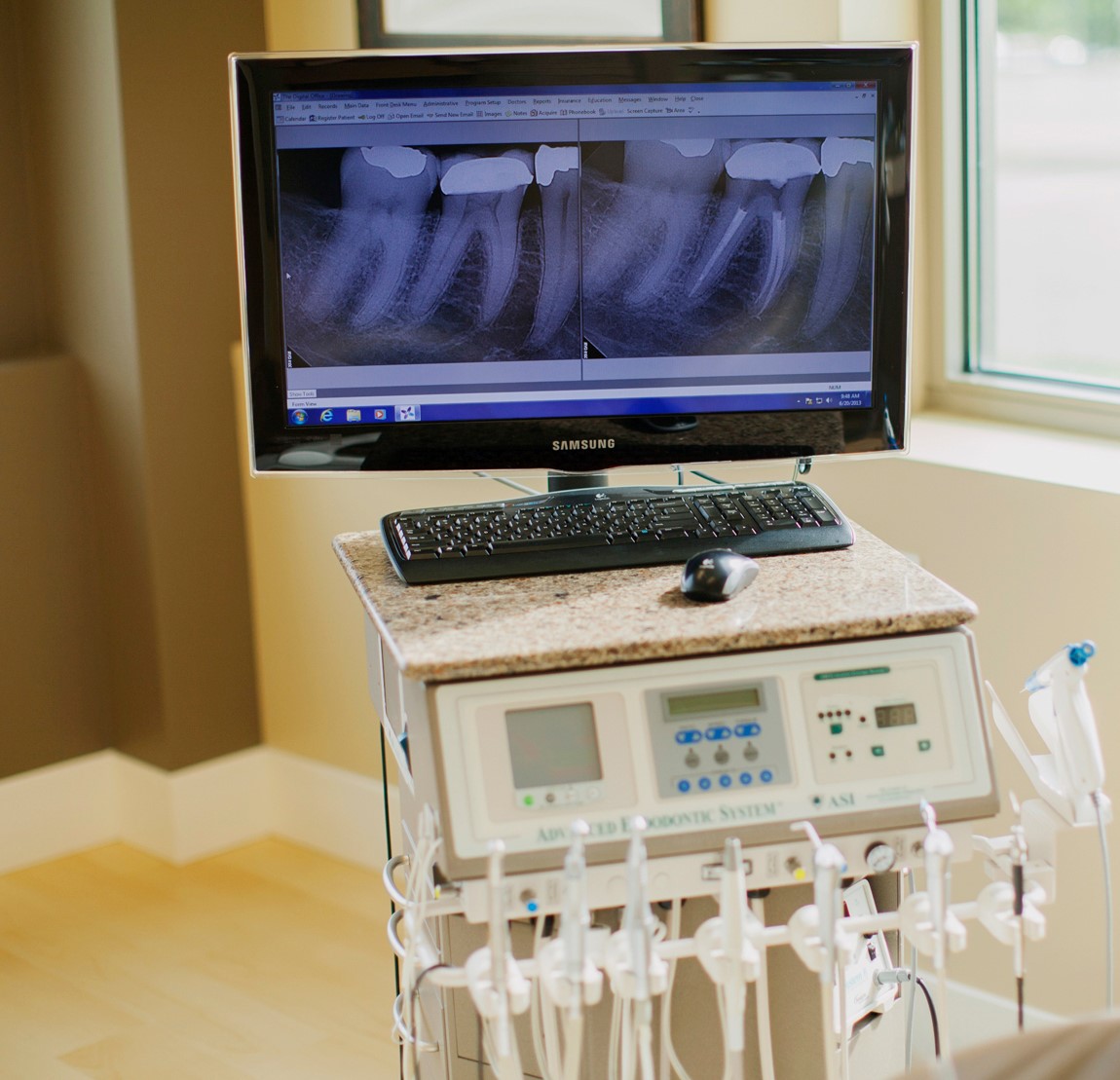
Turman Endodontics offers a variety of procedures for referring doctors and their patients. At Turman Endodontics we specialize in patient care, describing procedures and setting expectations while taking care of you from start to finish.
Below are some reasons why you have been referred:
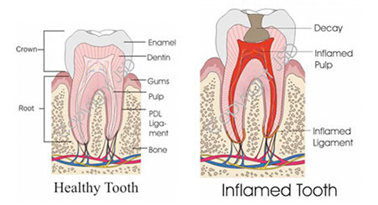
Please don't hesitate to contact us for more information.
Endodontists are dentists who specialize in maintaining teeth through endodontic therapy, or procedures that involve the soft inner tissue of the teeth, called the pulp. The word "endodontic" comes from "endo," meaning inside, and "odont," meaning tooth. Like many medical terms, it's Greek. All dentists are trained in diagnosis and endodontic therapy; however, some teeth can be especially difficult to diagnose and treat. That’s why you may have been referred to an endodontic specialist.
In addition to dental school, endodontists receive two or more years of advanced education in this kind of treatment. They study root canal techniques and procedures in greater depth, for diagnosis and treatment of more difficult cases. For this reason, many dentists choose to refer their patients to endodontists.
Pulp damage is sometimes caused by a blow to the mouth, and the endodontist specializes in treating these traumatic injuries. For example, a blow to a child's permanent tooth that is not fully developed can cause the root to stop growing. A procedure called apexification stimulates bone to be deposited at the end of the root which makes it possible to then save the tooth through a root canal procedure. An endodontist is specially trained in procedures for maintaining teeth that have been knocked out of their sockets or damaged from a traumatic injury.
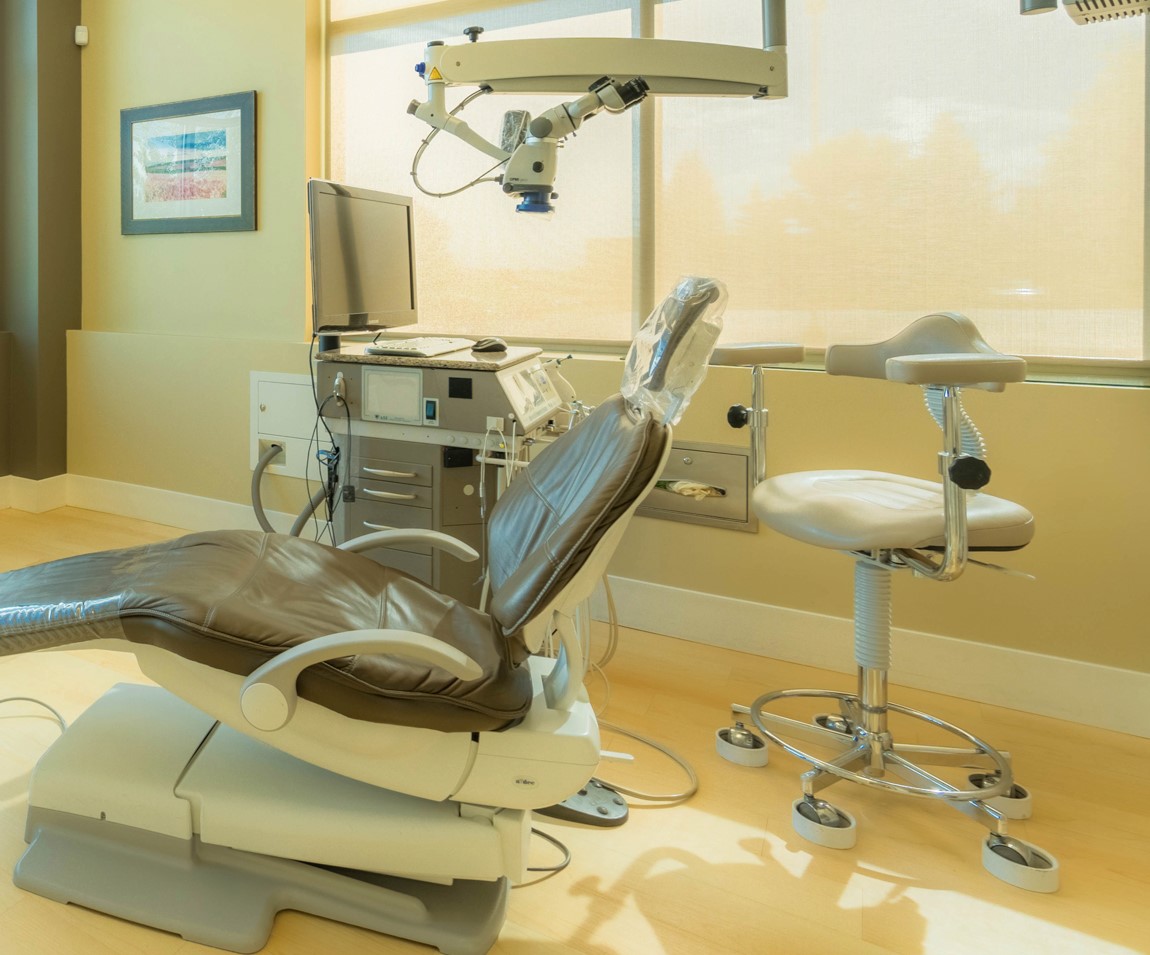
Oral pain such as toothaches or cracked / fractured teeth can often be difficult to pinpoint. Because of the vast network of nerves in the mouth, the pain of a damaged or diseased tooth often is felt in another tooth and/or in the head, neck, or ear. An endodontist is a specialist in diagnosing and treating this type of pain.
A small amount of local anesthetic will be given. A sheet of latex called the "rubber dam" (nonlatex materials are also available) will be placed around the tooth to isolate it, hence keeping it clean and dry during treatment. The treatment consists of three or four basic steps, but the number of visits will depend on your particular case. Some treatments take two visits but many may be completed in a single visit. Occasionally more than two appointments are needed.
Many dentists advertise "single visit root canal treatment." Take caution: speed does not improve quality. We put your dental health above all else, therefore, will take as much time as necessary to ensure the highest level of care.
In any case, it depends on the degree of infection/inflammation and degree of treatment difficulty. It's more important to do it the very best we can than to meet a specific time criterion. Let's look at the basic steps for nonsurgical endodontic therapy.
As with any medical procedures, there are no guarantees. Root canal or endodontic therapy has a very high degree of success. We will discuss with you the chances of success before any endodontic procedure to help you make an informed decision. If a root canal or endodontic therapy is unsuccessful or fails you still have options.
Once endodontic therapy is completed your tooth should be examined periodically, usually every 6 - 12 months. This allows us to make sure the tooth has healed or is healing properly. You will be sent a notice in the mail when we feel it is appropriate to reevaluate the area. Since an abscess may take two years to heal, our office will reevaluate the tooth for at least two years.
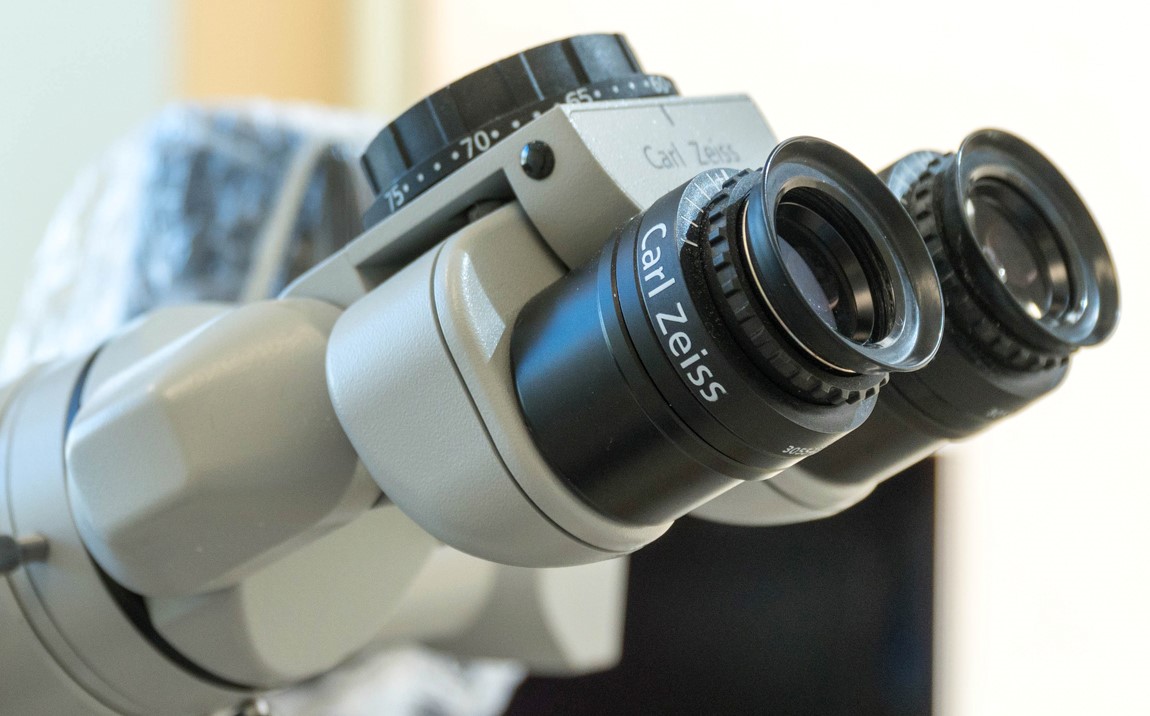
Occasionally a tooth that has undergone endodontic treatment fails to heal. Although your tooth may not have nerves inside, an infection at the root tip can cause inflammation and pain in the bone and periodontal ligament that surround the root tip. The reasons for persistent (refractory) pain vary. If you have pain in a tooth that has already undergone root canal therapy, it usually means that either some bacteria may have survived initial treatment, or new bacteria have found a way back in.
The inside of the tooth is very complex. The canal systems are microscopic networks that can contain many branches, fins, or deltas that can be difficult to see or may be inaccessible. Without the aid of specialized equipment available today (e.g. microscopes and 3-D imaging), entire canal systems may have been overlooked. Even if all the main canals were located, bacterial films may have persisted in the irregular contours inside the tooth. Our armamentarium of technologically advanced instruments and materials, as well as our multi-visit approach are designed to address these areas.
Bacteria are always present in your mouth no matter how often you brush and floss. Bacteria may be leaking back into the tooth around deteriorating fillings or crowns.
Although rare, teeth may initially respond to root canal therapy but become painful or diseased many years later. When this happens, retreating the tooth by removing old materials and re-disinfecting the tooth, can frequently resolve the problem and help you keep the tooth.
Take anti-inflammatories as directed: 600 mg Ibuprofen/3 tablets 200 mg each (Advil or Motrin are brand names you can use) every 6 hours by the clock for 3 days after treatment. If you cannot take Ibuprofen, use Tylenol as needed.
Tenderness is to be expected (around the tooth, and/or; in the jaw) for 3-7 days.
Tenderness when biting is also normal for up to 14 days.
Resume normal brushing and flossing routine same day as treatment.
Numbness can last 3-6 hours; be careful not to bite your tongue or cheek while numb.
Eat normal soft foods. Avoid anything too hard like ice or candy until a crown is placed.
If you were prescribed an antibiotic; take and finish as prescribed.
If you were prescribed a pain medication; take as directed (with Ibuprofen).
If you were prescribed a mouth rinse, use as directed.
A report along with your x-rays will be sent to your referring dentist. If any further work on the tooth is needed, such as a permanent filling or crown, you will be contacted by your referring dentist.
If calling Friday-Sunday, messages will be checked between the hours of 8:00 am - 4:00 pm. If messages are left after 4:00 pm, an assistant will return your phone call the following morning.
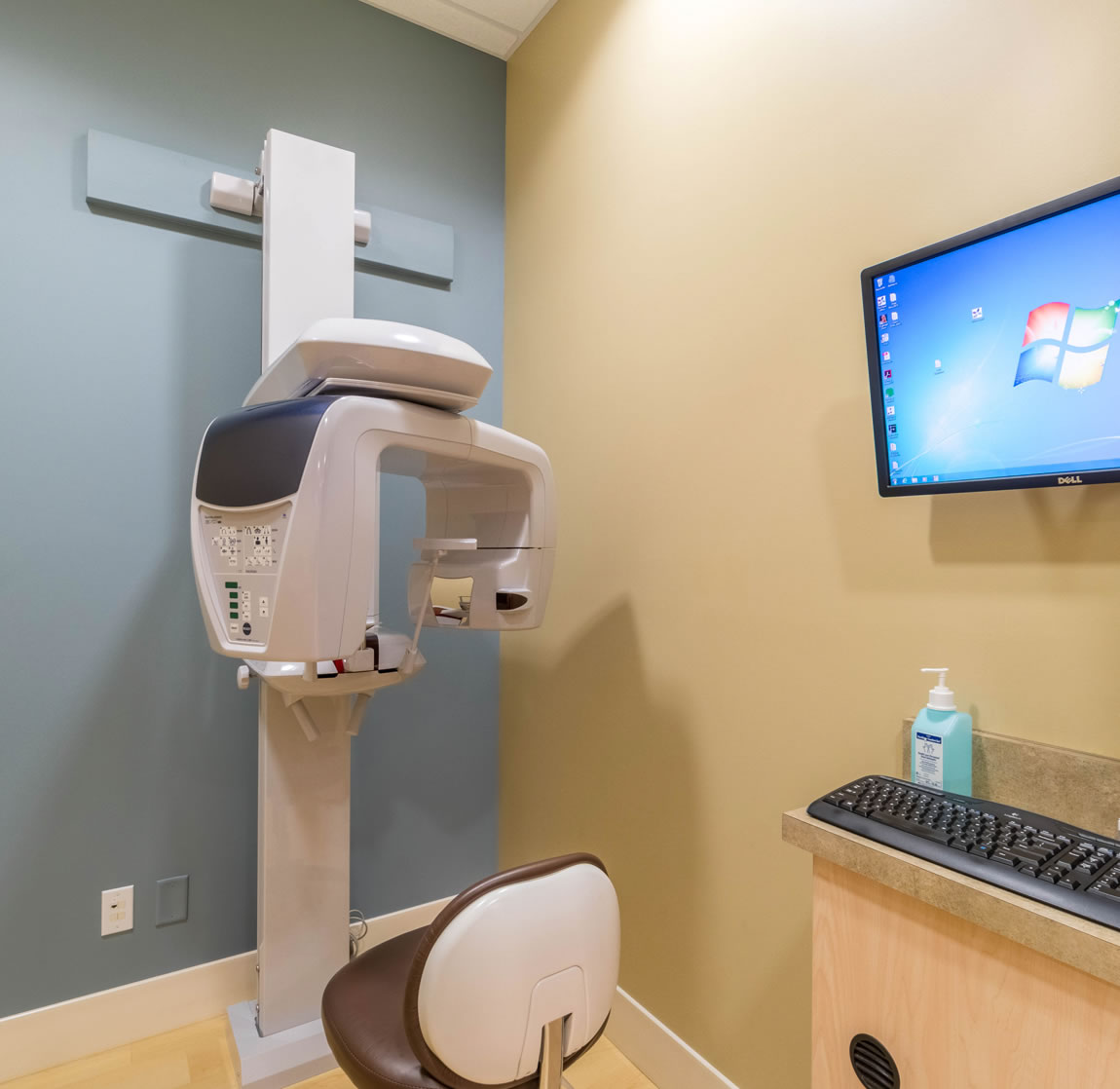

Dr. Turman is originally from Bismarck. He studied chemistry at the University of Mary and at the University of North Dakota. Following college, he earned his DDS degree at the University of Nebraska Medical Center in Lincoln, Nebraska. Following graduation, Dr. Turman pursued a two-year post-graduate residency in endodontics at the University of Loma Linda Medical Center in Southern California, studying under some of the most respected educators in the field. After earning his specialty certificate and a master's degree, he returned home to Bismarck to establish Turman Endodontics with a commitment to providing the best endodontic care possible. Dr. Turman is board eligible by the American Board of Endodontics.
Dr. Turman has an insatiable desire for continuing education and embraces technological advancements that enhance the delivery of quality dental care. He is a published author on three different endodontic articles, and has lectured to other dentists about various endodontic topics.
When he is not actively engaged in dentistry, Dr. Turman enjoys being on the farm with his wife, Missy, and four children, Liam, Lily, Noah and Landon. He enjoys horseback riding and the natural activities that come with the four seasons of North Dakota.
We will take the time to ensure you are fully informed about the risks, benefits, and alternative treatment options to help assist you with making a fully informed decision. You always have a choice and we want you to be actively involved in your treatment decisions. We will be very clear with you about the costs of your endodontic treatment.
The fee for your endodontic treatment will be based on the extent of treatment. During your first visit we will discuss the probable number of visits, their length, and the fees involved. As a courtesy, we will work with your insurance carriers to submit claims. To further facilitate access to our care, we are contracted providers with several insurance plans to help offset the cost of treatment:
We will estimate your copayment, and it is the office policy that your expected portion is paid at the time of treatment. We can only estimate your insurance benefits based on information provided to us by your carrier. You are ultimately responsible for the full cost of treatment if the insurance company contributes less than expected.
CareCredit® for Dental Procedures
We're pleased to offer our patients CareCredit® , North America's leader in patient payment plans. CareCredit® lets you begin your treatment immediately, then pay for it over time with low monthly payments that fit easily into your monthly budget.
CareCredit® is the credit card exclusively for healthcare services. With no up-front costs and no pre-payment penalties, CareCredit® lets you pay over time and frees up cash and credit cards for the other things you want or need. CareCredit® offers low monthly payment plans for healthcare procedures not commonly covered by insurance, including dental treatments. Plus, you can use your card again and again to pay for additional treatment for yourself or family members in any CareCredit® practice.
Learn more by visiting CareCredit.com or contacting our office.
